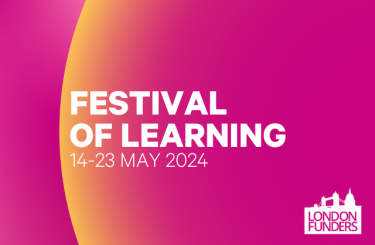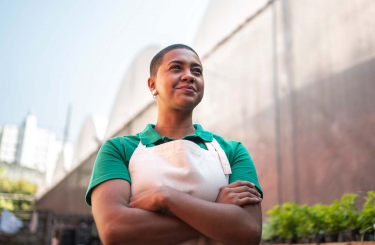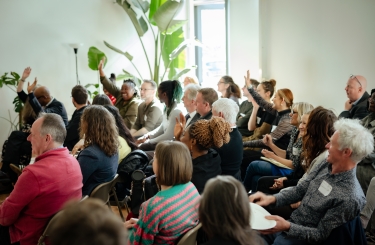

Next week Londoners will head to the polls to elect the next Mayor of London. These elections will be happening alongside elections to the London Assembly as well as local by-elections in some parts of the capital. This year’s elections bring critical changes in how the elections will take place, with the Electoral Reform Act 2022 seeing the Supplementary Voting (SV) system replaced with First-Past-The-Post (FPTP), as well as introducing the requirement for voter ID.
So whereas in previous mayoral elections voters could make a first and second choice for Mayor, this time they will only get one vote. This, combined with the need for photo ID, have implications for people’s ability to play their part in the democratic process. A report by the Electoral Commission, looking at the impact of introducing voter ID in the May 2023 elections showed that “it had a disproportionate effect on disabled and unemployed voters, who were more likely not to vote due to not having ID”. First-Past-The-Post could also mean the Mayor of London is elected on a narrower majority, according to the Electoral Reform Society, who say that “in a city with a hugely diverse population of almost nine million, preventing that diversity of opinion from finding a compromise and middle ground via their vote is wholly undemocratic”. While we await to see what turnout looks like next week, here is a reminder of some of the information out there to support voter ID, including resources from the GLA’s Every Voice Matters campaign and the Electoral Commission.
So, what are some of the issues on this year’s campaign trail? It won’t be a surprise that housing is high on the agenda of mayoral candidates* this year. Current Mayor Sadiq Khan has pledged to build 40,000 council homes by 2030 if re-elected, as well as promising to eradicate rough sleeping (levels of which are now their highest in a decade). Housing also features on Conservative candidate Susan Hall’s five-point plan for London, with a focus on increasing family homes, shared ownership and Build to Rent schemes. The Green Party’s candidate Zoe Garbett has pledged to increase access to affordable and safe housing, including via rent control powers for London while the Lib Dems’ Rob Blackie will focus on measures including increasing supply across all tenures and strengthening renters’ rights.
We’re also seeing candidates respond to the environmental crisis with their election pledges. The scale of the challenge faced by the city is well documented: 99% of London neighbourhoods breach levels of N02 (a key measure of air pollution) recommended by the World Health Organisation and just 3% homes in the capital can be powered by onshore renewable energy [data from Friends of the Earth]. Much of the media debate so far has been dominated by ULEZ, but while transport and traffic measures remain a focus, there are also other shared commitments to boost green jobs, make better use of London’s green space and cut water pollution. But will these go far enough? Data from our member London Councils in September last year found 84% of Londoners are concerned about climate change, with over two-thirds saying their level of concern has increased over the past 12 months. You can read about some of the measures being put forward by campaigning groups in this ten-point Climate Action plan for the new London Mayor from Friends of the Earth.
77% of our members currently fund activity which supports children and young people – so it’s interesting to see some commitments to improving opportunities for London’s young people. The Green party would expand the Young Londoners’ Fund and invest in youth workers; boosting apprenticeships feature in the Lib Dems plans; Hall focuses on reducing knife crime among young Londoners; while investment in youth clubs is one of Labour’s 10 key pledges (for those interested what other policy ideas have been put forward by civil society, check out the Young Londoner’s 2024 Mayoral Manifesto). Elsewhere, transport and safety are two issues also being contested, with all four candidates proposing various measures to improve policing and tackling crime. There are some specific pledges to invest in services for women affected by violence (which include pledges from current Mayor Sadiq Khan to ‘redouble’ efforts and provide free legal advice for those affected by sexual violence; while Hall and Garbett would both invest in support services for those affected by sexual and domestic violence).
There are of course too many other policies on this year’s campaign trail to do justice to here, from boosting economic growth, increasing fiscal devolution for London, to supporting Londoners through the ongoing cost of living pressures. But for whoever becomes Mayor of London next week, a strong and productive relationship with London’s civil society will be key to not just seeing these commitments being delivered on the ground, but to holding the Mayor to account and campaigning for the other changes our city wants to see. At the same time, we know this is a sector repeatedly battered by austerity, cost of living pressures and the legacy of the pandemic. We’d urge the incoming Mayor to promote an environment where the contribution it plays is truly valued, underpinned by longer-term investment in communities as well as the underlying infrastructure that’s so crucial for a thriving civil society.
Later today we'll be attending hustings hosted by London Citizens, part of Citizens UK, which is the largest alliance of civic organisations in Europe. Their manifesto draws together the views of over 6000 Londoners and the things they’d like to see the next Mayor take action on. At its heart is a reminder that the joint action and energy of communities can not only help ‘fix some of London’s most intractable problems’ but ensure that London ‘is a city for all Londoners - a city in which everyone can be safe, stable, prosperous, and thrive’.
Here at London Funders, we’re looking forward to continuing our strong relationship with the Mayor and City Hall, working together to find solutions to the shared challenges we face and investing to make London a greener, more equitable and sustainable city. For us it will also mean looking beyond London, to the general election and pressing national policy challenges which require action from Westminster – not least adequate multi-year local finance settlements for London’s boroughs. And we’ll continue to learn from our friends across the globe about how public, private and philanthropic partners in other cities are pooling knowledge and investment to tackle some of the issues they face.
Stay tuned for future member events where we’ll be discussing what lies ahead for Londoners as well as our May Festival of Learning where some of the live issues facing Londoners will be explored in more detail.
*We have only included candidates of the four main parties, there are however 13 candidates standing, a full list of which can be found here


